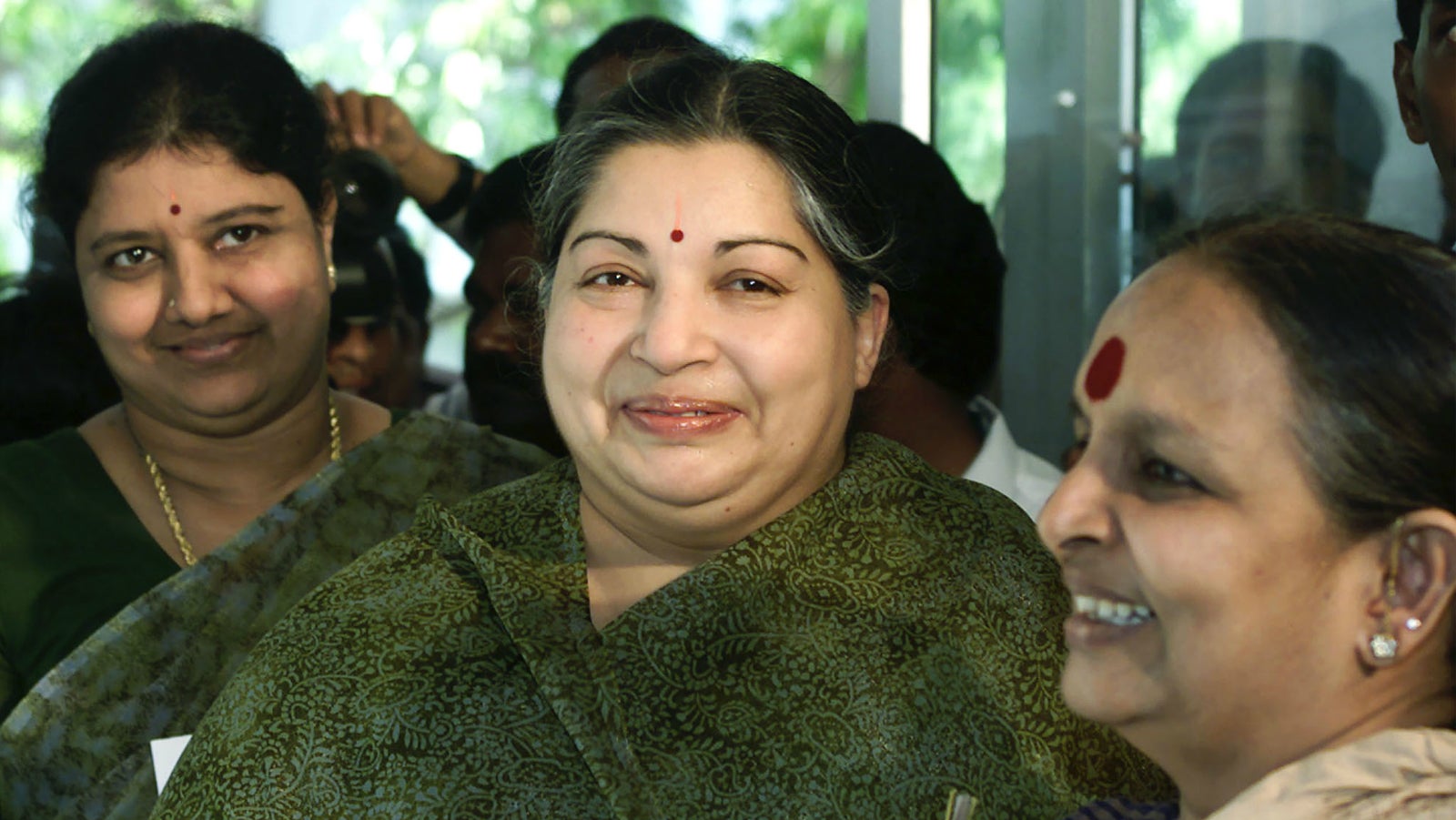Supreme court ends Sasikala’s chief ministerial dreams, Jayalalithaa’s mantle may stay with Panneerselvam
The leadership battle in southern India’s Tamil Nadu may just have got more complicated.


The leadership battle in southern India’s Tamil Nadu may just have got more complicated.
On Feb. 14, the supreme court (SC) convicted All India Anna Dravida Munnetra Kazhagam (AIADMK) general secretary VK Sasikala Natarajan in a 21-year-old illegal assets case. The court was hearing an appeal to overturn a lower court’s order convicting her and her mentor, the late chief minister (CM) of the state, J Jayalalithaa. The SC concurred with the lower court’s verdict and sentenced Natarajan to four years in prison.
This automatically makes her ineligible to contest any elections according to Indian law, effectively ending Natarajan’s recent attempts to assume the chief ministership of the state.
This leadership issue had vexed a good section of the Tamilian electorate, as well as political rivals and observers, ever since Jayalalithaa’s death on Dec. 05, 2016. Jayalalithaa, or Amma as she was fondly referred to by her followers, died following a prolonged illness, with several doubts being raised over the nature of her death subsequently. Speculation over possible foul play is rife.
Shortly after her death, Natarajan, Amma’s live-in aide for decades, assumed the leadership of AIADMK, though she has apparently no political, administrative or legislative experience.
Meanwhile, another long-time protege, O Panneerselvam, who had been CM in the past during Amma’s absence due to legal issues, was almost automatically named to the post.
However, in the last few weeks, Natarajan had begun to make determined moves to become CM, leading to intense political drama.
She and Panneerselvam made claims and counterclaims and even poached state legislators from each other’s camps. While he accused her of intimidation and manipulation, she said it was difficult to be a woman in politics.
Meanwhile, the SC decision was a culmination of a long legal process that began in 1996. Natarajan was a co-accused alongside the late leader herself in the disproportionate assets case. The duo was believed to have amassed a massive illegal fortune of around Rs66 crore during Amma’s first term as CM between 1991 and 1996. Following concerns over her political influence skewing the case, it was shifted to neighbouring Karnataka, where a trial court found the accused guilty in 2014. Though Amma was forced to step down as CM, making way for loyalist Panneerselvam to take over, a year later the Karnataka high court (HC) declared them innocent, allowing her to return to power.
The HC’s decision, however was later appealed against at the SC.
The apex court’s findings now mark the end of the road for Natarajan. She must surrender to the Chennai police and will be barred from contesting elections for the next 10 years.
However, how the numbers would play in the state’s legislative assembly is still moot. She can always choose a CM nominee, as was her mentor’s practice when legally forced to give up power. Natarajan claims to have the support of an overwhelming majority of the AIADMK legislators—though many among them have crossed over to the Panneerselvam camp in the past few days.
Panneerselvam, on his part, claims that most of these legislators backing Natarajan are doing so under threat and coercion.